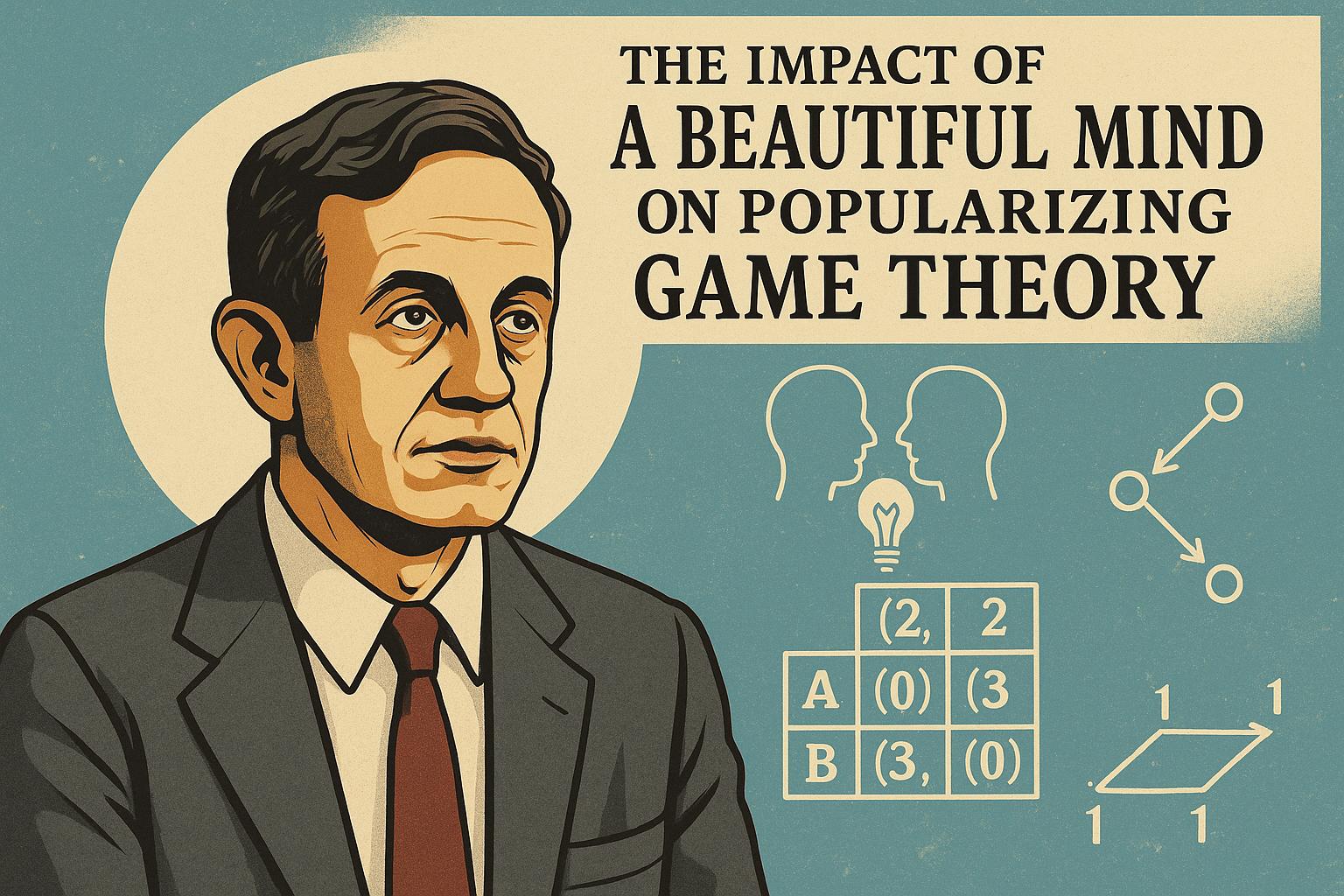Introduction to Game Theory
Game theory is a branch of mathematics that deals with the study of strategic interactions among rational decision-makers. It has wide-ranging applications in various fields, including economics, evolutionary biology, political science, and computer science. At its core, game theory provides a framework for predicting and analyzing how individuals or groups make decisions in competitive situations where the outcome for each participant depends heavily on the actions of others. By understanding the strategic choices available, decision-makers can optimize their outcomes, taking into account the potential responses from other participants.
John Nash and His Contribution
A pivotal figure in the development of game theory is John Nash, an American mathematician whose work significantly advanced the field. Before Nash’s contributions, many aspects of game theory were largely theoretical and limited in scope. Nash expanded its applicability with the formulation of the Nash equilibrium, a concept that describes a situation where each player in a game is making the best possible decision given the decisions of others. Importantly, in a Nash equilibrium, no player has anything to gain by changing only their own strategy unilaterally. This concept is fundamental in understanding strategic decision-making processes and has become a cornerstone in game theory.
Nash’s equilibrium theory found applications in various domains, such as economics and politics, where decisions by multiple entities are closely interlinked. It helped in creating models that better reflect real-world scenarios, where the interdependence of decisions is a key factor.
A Beautiful Mind: The Film
The 2001 film A Beautiful Mind, directed by Ron Howard, is a biographical drama that dramatically depicts John Nash’s life and his groundbreaking work in game theory. The film, based on the biography by Sylvia Nasar, stars Russell Crowe as Nash, portraying not only his monumental intellectual achievements but also his personal struggles with schizophrenia. A Beautiful Mind received critical acclaim and won four Academy Awards, including Best Picture. This recognition significantly increased public interest and awareness of Nash’s work and the field of game theory.
While the film takes artistic liberties, it effectively highlights Nash’s intellectual contributions and personal resilience, making complex mathematical theories accessible to a general audience. The widespread acclaim and viewership of the film brought academic concepts to the forefront of public discussion, sparking curiosity and admiration for mathematicians and their work.
Impact on Popular Culture
A Beautiful Mind served as an important vehicle for bringing game theory to a broader audience. Prior to the release of the film, game theory was primarily of interest to academics and those involved in specific professional fields. The success of the movie introduced game theory concepts to a more general audience. By showcasing their relevance beyond abstract mathematical or economic models, the film paved the way for greater societal engagement with these ideas.
In addition, the film’s portrayal of Nash’s personal struggles alongside his professional achievements contributed to broader conversations regarding mental health in the context of high-achieving individuals. This narrative has had lasting effects on public discourse, encouraging discussions about mental health awareness and its impact on professional life.
Game Theory in Modern Applications
The increased attention on game theory post-A Beautiful Mind has inspired further exploration and application of its principles across different sectors. Game theory has become an invaluable tool in designing auctions, facilitating the establishment of economic policies, and shaping competitive business strategies. The concepts developed within this theoretical framework help experts understand complex interactions where multiple parties with differing objectives are involved.
In the business realm, companies utilize game theory to anticipate competitors’ moves and adjust their strategies accordingly. Through strategic decision-making models rooted in game theory, businesses can better navigate market dynamics and optimize their competitive edges. Likewise, policymakers employ game theory to craft strategies and regulations that account for the potential reactions and counteractions of various stakeholders, often resulting in more resilient and effective policy frameworks.
Furthermore, game theory has found applications in technology, particularly in algorithmic game theory, which investigates strategic behavior in computational settings. This area of study is vital for developing robust algorithms that can handle decentralized systems shared by multiple users, ensuring that overall system efficiency is not compromised by individual strategic actions.
Beyond economics and technology, game theory is also utilized in evolutionary biology to model and predict behaviors in ecological and evolutionary processes. By considering the strategic interactions among organisms, scientists can better understand evolutionary outcomes and species distribution patterns.
In conclusion, the film A Beautiful Mind played an influential role in popularizing game theory by making John Nash’s life and achievements known to a wider audience. It has led to a greater appreciation and understanding of the practical applications of game theory outside academic circles. For those interested in delving deeper into game theory, resources from MIT Press and Princeton University Press are excellent starting points, offering a wealth of materials on the subject.
This article was last updated on: September 7, 2025

